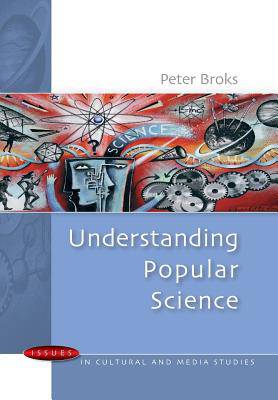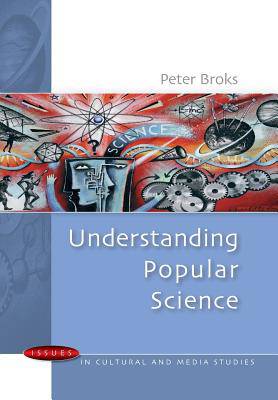
Door een staking bij bpost kan je online bestelling op dit moment iets langer onderweg zijn dan voorzien. Dringend iets nodig? Onze winkels ontvangen jou met open armen!
- Afhalen na 1 uur in een winkel met voorraad
- Gratis thuislevering in België vanaf € 30
- Ruim aanbod met 7 miljoen producten
Door een staking bij bpost kan je online bestelling op dit moment iets langer onderweg zijn dan voorzien. Dringend iets nodig? Onze winkels ontvangen jou met open armen!
- Afhalen na 1 uur in een winkel met voorraad
- Gratis thuislevering in België vanaf € 30
- Ruim aanbod met 7 miljoen producten
Zoeken
Omschrijving
Science is a defining feature of the modern world, and popular science is where most of us make sense of that fact. Understanding Popular Science provides a framework to help understand the development of popular science and current debates about it. In a lively and accessible style, Peter Broks shows how popular science has been invented, redefined and fought over. From early-nineteenth century radical science to twenty-first century government initiatives, he examines popular science as an arena where the authority of science and the authority of the state are legitimized and challenged. The book includes clear accounts of the public perception of scientists, visions of the future, fears of an anti-science movement and concerns about scientific literacy. The final chapter proposes a new model for understanding the interaction between lay and expert knowledge. This book is essential reading in cultural studies, science studies, history of science and science communication.
Specificaties
Betrokkenen
- Auteur(s):
- Uitgeverij:
Inhoud
- Aantal bladzijden:
- 202
- Taal:
- Engels
- Reeks:
Eigenschappen
- Productcode (EAN):
- 9780335215485
- Verschijningsdatum:
- 1/06/2006
- Uitvoering:
- Paperback
- Formaat:
- Trade paperback (VS)
- Afmetingen:
- 171 mm x 226 mm
- Gewicht:
- 362 g

Alleen bij Standaard Boekhandel
+ 86 punten op je klantenkaart van Standaard Boekhandel
Beoordelingen
We publiceren alleen reviews die voldoen aan de voorwaarden voor reviews. Bekijk onze voorwaarden voor reviews.











